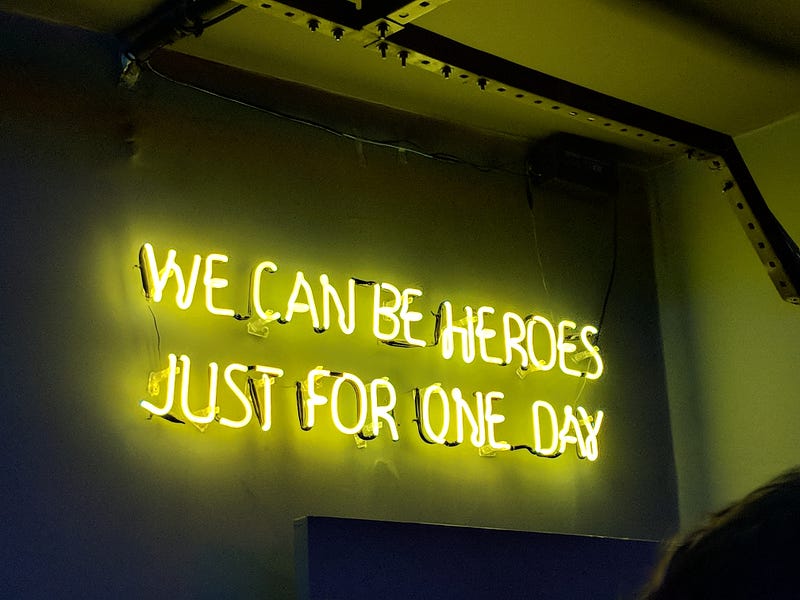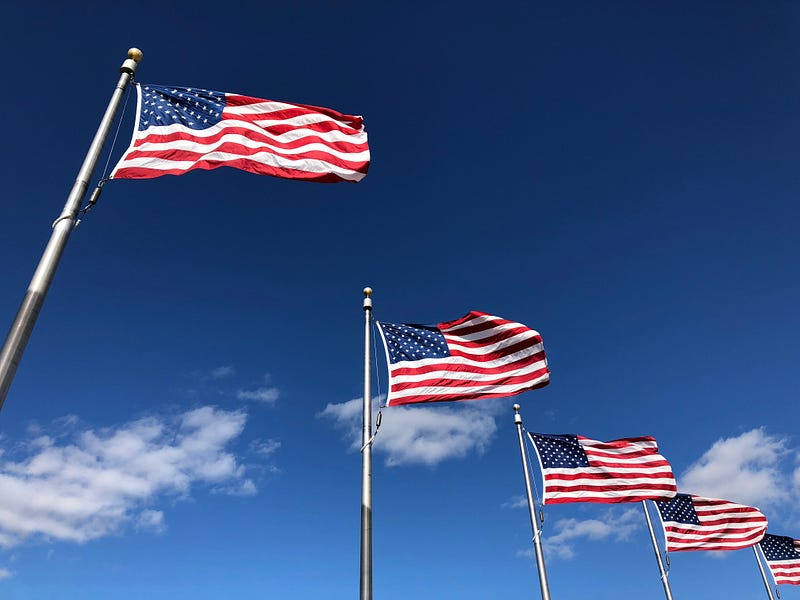“The first object of human association is the improvement of their condition.”-Thomas Jefferson: Declaration and Protest of Virginia, 1825.
Once upon a time there was a grand experiment to see if a country by the people, for the people, could survive the tests of time and never perish from the earth. Or so the mythology goes. But myth has purpose and myth has power; we may not live in a country founded utterly for the good of all humanity (founded as it was by an elite ruling merchant class for the benefit of an elite merchant ruling class), but the myth of an exceptional America remains: a United States that, regardless of local differences, exists to uphold the common good and promote democracy around the globe.
It’s in-vogue to deconstruct common myths these days, especially those which deal with inherited power structures — and that trend is, by and large, a positive one. But we risk losing something if we discard the myth after we’ve deconstructed it. If we fail to recognize the gains (even as we recognize the shortcomings) we run the risk of “throwing the baby out with the bathwater” and leaving ourselves worse off than we were before.
All for one and one for all
Which brings me to my thesis statement, that “countries should provide for their people” is an unpopular opinion in the current climate. The truth is, it’s not exactly unpopular so much as hotly contested, but even that begs the follow-up question: “why?”
Why would so many citizens of the United States be opposed to the idea of their country caring for them? The answers are complex, but not so tangled that they can’t be understood. Political movements toward specific forms of individualism, the promotion of negative forms of capitalism, and the long-running conflict with Soviet Russia are all major contributors.
But since my interest is mythology, let’s look at things from that angle and examine the myth of American Exceptionalism itself to see if we can find some answers.
Exceptional till the end
There are two sides to this coin: “America can do no wrong” and “America strives to be the best.” The first of these is the side of the myth that’s dangerous, it’s the side of the myth that promotes international surveillance, illegal military “police actions,” and the destruction of common resources. But it’s also a comforting myth for many people. The myth that the United States is “the best” allows people to simplify their lives and place themselves on the side of “justice, light, and goodness.” It’s a powerful mythology, one that shouldn’t be overlooked or disrespected just because of its negative potential.
The other side of the Exceptional mythos is very different, however. There, we find ourselves looking at the idea of a striving culture — a culture not defined by its limitations but by its potential. This is the United States of our collective Gold Age dreaming, a country where technology, upright social mores, and the rule of just law combine in an enlightened State worthy of respect. It, too, can have its downsides — indeed, these are, as I mentioned, part of the same thing, so the interconnections are native. But this second myth, this myth of striving, clearly has a lot more potential than the first when adopted wholly.

Returning to the better myth
We have to assume that by and large most human beings want the same things. We want our families to be safe (well fed, sheltered, capable of choosing their path in life). Social norms might alter how we look at these basics, but ultimately it always comes back to the core. We also generally want a few other knows: love, fulfillment, and a degree of leisure time.
Spiderwebbing through all of these needs, however, is something extremely important and profound: a need for meaning.
Mythologies allow us to come to terms with the world around us, to encircle complexities with simple abstract symbols. Not only does this make complexities manageable to us, it allows us to manipulate complex situations in simple ways.
Right now, a lot of people are struggling with the disillusion of specific myths about what it means to be a citizen of this country. Some of them are actively fighting any attempt at disillusionment, because even casually entertaining such thoughts leaves their entire life vulnerable. This deconstruction of mythology is inevitable, however, unless highly regressive action is taken to stem it (and history shows that, even then, change still occurs with time).
So, if change is inevitable but certain mythological structures are still needed in order to generate progress, perhaps we can return to the myth of an “Exceptional America” — just, in a slightly different way.
The groundwork, as seen within the Thomas Jefferson quote at the beginning of this article, is already in place; we have deep roots for a popular myth of a progressive United States. We might be able to salvage the dream of a grand American future if we can provide the citizens of this country with a new myth to believe in, based on the roots of the old; a mythology of a country united in the common goals of self-betterment, mutual aid, and the true exceptionalism that comes from… actually being exceptional. If we can turn the next part of our zeitgeist into a vast reformation, where we acknowledge the need for social betterment, community-owned infrastructure, and strong civic-minded education, then maybe we’ll actually get to live out the dream of an exceptional America after all.

